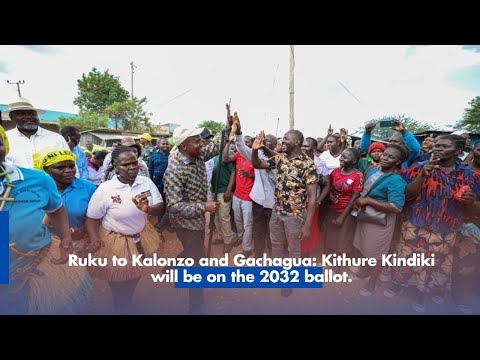
Meta has notified Kenyan content creators of a new tax
deduction that will apply to all payouts starting January 1, 2026, in line with
changes to local tax laws.
In a communication to creators, the company said Kenya’s tax
regulations now require all businesses to deduct and remit withholding tax to
the Kenya Revenue Authority (KRA) for payments made to creators based in the
country.
As a result, Meta confirmed it will begin deducting a 5 per
cent withholding tax on all payouts.
“Starting 1 Jan 2025, Kenya Tax law requires all businesses
to deduct and remit taxes to the Kenya Revenue Authority (KRA) for any payments
made to creators located in Kenya,” the notice stated.
“As a result, Meta will deduct 5% withholding tax from all
payments made to you; and the same would also be reflected in the remittance
advice issued to you by Meta.”
According to the company, the deductions will appear in
monthly remittance statements provided to creators. The net amount after tax
will be transferred to their accounts.
“Beginning December 2025, all payments made will be subject
to 5% creator withholding tax (in addition to any other withholding taxes
applicable) and the net amount after tax will be paid to you,” Meta said.
The move aligns Meta with new government efforts to tighten
compliance and widen the tax base in Kenya’s digital economy, which has grown
rapidly on the strength of online content creation, influencer marketing, and
digital advertising.
The announcement is expected to affect thousands of Kenyan
creators earning through Facebook, Instagram and other Meta monetisation
programmes.
Creators will now be required to reflect the deducted tax
when filing their annual returns with KRA.
The change follows ongoing policy shifts targeting digital revenue
streams as the government seeks to enhance tax collection from fast-growing
online income sources.
Withholding tax is a mandatory levy that requires businesses
or organisations making certain payments to deduct a specified percentage at
the source and remit it directly to the Kenya Revenue Authority (KRA) on behalf
of the recipient.
Under Kenyan law, the tax is applied to a range of income
categories — including professional fees, interest, dividends, royalties and,
more recently, payments made to digital creators.
The system is designed to enhance compliance and ensure the
government collects revenue upfront rather than relying solely on annual returns.
Meta in August 2024 announced the roll out two monetisation
features for creators in Kenya
Meta said features; In-Stream Ads on Facebook and Facebook
Ads on Reels, will enable creators earn money by producing original videos and
building their community.
According to Meta's Global Partnerships Lead for Africa,
Middle East and Türkiye, Moon Baz, the features will empower Kenyan creators to
earn an income through their content.
She said it will help grow the creative business in the
country.
“Every day, we’re inspired by the incredible African
creators who use Facebook to tell their stories, connect with others, and bring
people together.
"This expansion will empower eligible creators in
Kenya’s vibrant creative industry to earn money, setting a high bar for
creativity worldwide and making Meta’s family of apps the one-stop-shop for all
creators,” Baz said.
Meta said that In-Stream Ads can play before,
during, or after on-demand videos, whether it’s pre-recorded content or
recordings of previous live streams.
These include Pre-roll Ads (before the video starts),
Mid-roll Ads (during videos), Image Ads (static images displayed beneath the content),
and Post-roll Ads (end of videos).
The company said Ads on Facebook Reels will integrate seamlessly into original Reels, and creators will get paid based on the performance of their original reels.
















